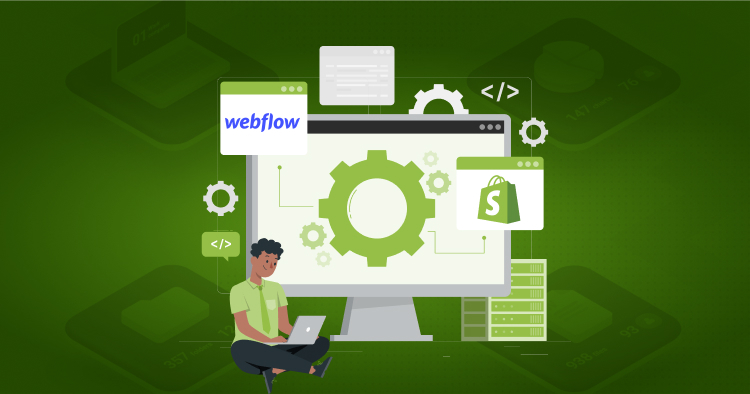Managing finances for your Shopify store shouldn’t feel overwhelming. As sales volume grows and transactions multiply, maintaining accurate books becomes increasingly complex. The right accounting software for Shopify transforms chaotic data into organized, actionable financial insights that drive better decisions.
Summary
- Top 5 platforms compared: QuickBooks, Xero, FreshBooks, NetSuite, and SAP Business ByDesign with pricing and integration details
- Integration essentials: How to connect Shopify payouts, payment gateways, and third-party apps seamlessly
- Accrual vs. cash methods: Why accrual accounting provides clearer profitability visibility
- Reconciliation workflows: Automated processes for managing sales, inventory, and tax-ready financials
- Selection criteria: Business size, automation needs, and budget considerations
Why Shopify Stores Need Dedicated Accounting Software
Shopify’s default reports provide basic transaction summaries but lack comprehensive financial visibility. These built-in tools don’t break down lump-sum payouts, track cost of goods sold accurately, or provide audit trails needed for tax compliance.
When a $2,000 payout hits your bank, it’s not simply $2,000 in sales. That amount represents gross sales minus Shopify fees, payment processing charges, refunds, shipping revenue, and collected sales tax. Professional accounting software for Shopify automatically breaks down each payout into components, ensuring every dollar flows to the correct account.
Beyond automation, specialized tools solve reconciliation challenges. Manual tracking becomes error-prone once you’re processing hundreds of monthly transactions. The best accounting software for Shopify stores automates categorization, fee calculations, inventory tracking, and financial statement generation.
How to Choose Accounting Software for Shopify Stores
Business Size and Transaction Volume
Stores under 100 monthly orders can manage with entry-level solutions. Mid-sized stores (100-1,000 orders) need robust automation and detailed reporting. Enterprise operations exceeding 1,000 orders require sophisticated systems managing complex workflows across multiple channels.
Integration Capabilities
Evaluate how platforms handle payout reconciliation, multi-channel data separation, automatic fee categorization, and tax tracking. The best accounting software for Shopify makes integration feel invisible—transactions flow automatically without constant oversight.
Automation Requirements
Essential features include bank reconciliation matching deposits to sales, invoice and payment processing, expense tracking with receipt scanning, and inventory management with real-time COGS calculations.
Reporting Needs
Standard reports include profit and loss, balance sheets, and cash flow statements. Advanced needs may require custom report builders, trend analysis, inventory turnover metrics, and multi-entity consolidation.
Budget Considerations
Entry-level: $15-35 monthly. Mid-tier: $50-100 monthly. Enterprise: $200+ monthly. Factor in connector app costs ($19-149 monthly), implementation fees, and training time when evaluating total investment.
Top 5 Best Accounting Software for Shopify Integration
1. QuickBooks Online
Pricing: $35-235/month across four tiers
Strengths: Industry-standard platform with widespread accountant familiarity, comprehensive reporting, extensive integrations, and scalable features. Supports multiple users with customizable permissions.
Limitations: Requires third-party connectors like A2X for Shopify integration, steeper learning curve for accounting novices, and higher costs at advanced tiers.
Best for: Established stores processing 200+ monthly orders, businesses working with external accountants, and companies requiring sophisticated multi-channel reporting.
2. Xero
Pricing: $20-80/month with unlimited users on all plans
Strengths: Intuitive interface, excellent multi-currency support for international sellers, unlimited user access without per-seat charges, and polished mobile app for on-the-go management.
Limitations: Requires third-party apps for Shopify integration, basic inventory features compared to competitors, and transaction limits on entry plans.
Best for: International merchants, teams needing collaborative access without extra fees, and business owners prioritizing user experience.
3. FreshBooks
Pricing: $21-65/month based on billable clients
Strengths: Exceptional invoicing and payment processing, minimal training required, strong time tracking for service components, and professional customer-facing financial tools.
Limitations: Limited ecommerce-specific features, less comprehensive Shopify integration, basic inventory tracking, and shallow reporting for complex operations.
Best for: Stores blending product sales with services, small businesses requiring simple bookkeeping, and merchants prioritizing customer invoicing.
4. NetSuite
Pricing: $999+/month plus implementation costs
Strengths: Complete ERP functionality, unlimited scalability, sophisticated financial controls, powerful business intelligence, and multi-entity support with consolidated reporting.
Limitations: Expensive implementation and subscription, complex setup requiring consultants, steep learning curve, and overkill for small businesses.
Best for: High-volume stores exceeding $5M annual revenue, multi-channel or multi-brand operations, and companies requiring advanced financial controls.
5. SAP Business ByDesign
Pricing: $21-212 per user/month
Strengths: Enterprise features at mid-market pricing, strong international business support, comprehensive compliance tools, and scalable cloud architecture.
Limitations: Complex implementation requiring expertise, significant training investment, non-native Shopify integration, and less intuitive interface than modern cloud apps.
Best for: Growing businesses planning international expansion, companies requiring robust financial controls, and operations needing integrated ERP without NetSuite costs.
Accounting Software Comparison Table
|
Feature |
QuickBooks Online |
Xero |
FreshBooks |
NetSuite |
SAP ByDesign |
|
Starting Price |
$35/month |
$20/month |
$21/month |
$999/month |
$21/user/month |
|
Shopify Integration |
Via A2X |
Via A2X |
Limited |
Via Celigo |
Custom |
|
Inventory Tracking |
Advanced |
Basic |
Limited |
Enterprise |
Advanced |
|
Multi-Currency |
Yes |
Excellent |
Limited |
Comprehensive |
Comprehensive |
|
User Access |
Varies by plan |
Unlimited |
Varies |
Unlimited |
Per user |
|
Best Business Size |
Small-medium |
Small-medium |
Micro-small |
Enterprise |
Medium-enterprise |
Key Accounting Concepts for Shopify Sellers
Cash vs. Accrual Accounting
Cash accounting records revenue when money arrives and expenses when paid. Accrual accounting records revenue when earned (at sale) and expenses when incurred, regardless of payment timing.
For Shopify stores, accrual accounting reveals true profitability by matching revenue with costs. If you purchase $5,000 inventory in January, sell it in February for $12,000, but receive the payout in March, accrual correctly shows the $7,000 profit in February. Cash accounting would incorrectly show losses in January and profit in March.
Chart of Accounts Setup
Your chart of accounts organizes transactions into categories: revenue accounts (product sales, shipping, gift card breakage), COGS accounts (inventory purchases, manufacturing), expense accounts (marketing, software, professional services), asset accounts (cash, inventory, equipment), liability accounts (accounts payable, sales tax collected), and equity accounts (owner investment, retained earnings).
Tracking Cost of Goods Sold
COGS represents direct costs to acquire products you sell: product costs from suppliers, inbound shipping, and customs duties. Accurate COGS tracking enables informed pricing decisions and reveals which products drive profit versus drain resources.
Shopify Payout Reconciliation Process
Each Shopify payout bundles multiple transaction types requiring separate accounting:
- Gross sales revenue from completed orders
- Refunds and returns reducing revenue
- Shopify fees (subscriptions, transaction fees, apps) as business expenses
- Payment processing fees as operating expenses
- Sales tax collected as liability, not revenue
Manual reconciliation involves downloading reports, creating journal entries for each component, and verifying totals match bank deposits—consuming hours for high-volume stores. Automated reconciliation through connectors like A2X eliminates this manual work by automatically pulling payout details and posting categorized entries to your general ledger.
Managing Multiple Payment Gateways
Multiple payment processors (PayPal, Stripe, Afterpay) create separate flows requiring independent reconciliation. Each follows different timelines and fee structures. Shopify Payments deposits within 2-3 days, PayPal varies from instant to 24 hours, and buy-now-pay-later services follow custom schedules.
A store processing 1,000 monthly orders across four payment methods faces hundreds of transactions requiring proper categorization—easily 20-30 hours monthly with manual reconciliation. Integrated accounting solutions connect directly to major processors, automatically importing and categorizing transactions.
Tax Considerations and Compliance
Shopify calculates tax rates, but proper accounting requires tracking collected tax separately from revenue in liability accounts by jurisdiction. When you collect $100 in sales tax, you owe that money to tax authorities—it’s never business income.
Specialized tools like TaxJar or Avalara integrate with Shopify and accounting software, automating liability tracking, generating ready-to-file reports, and handling automatic filing. Year-end financial statements depend on proper categorization. Common deductible expenses include software subscriptions, payment processing fees, advertising, professional services, and business mileage.
Integration Setup Best Practices
Pre-Implementation Preparation
Clean up Shopify data by reconciling historical transactions. Define your chart of accounts based on your business model. Determine accounting method (cash or accrual) and inventory valuation approach. Gather historical financial data and document current business processes.
Step-by-Step Integration
Create accounts in accounting software and connector apps. Connect systems by authorizing data sharing. Configure settings including date ranges, categorization rules, and payout mapping. Set up tax handling by jurisdiction. Import historical data. Verify initial syncs by manually reconciling first payouts.
Common Challenges
Historical data gaps may require manual opening balance entries. Multi-channel complexity needs separate tracking by source. Third-party app transactions must be captured. Payment timing differences require proper accrual configuration. Fee allocation needs specific categorization by type.
Key Takeaways
- Automation eliminates manual reconciliation: Best accounting software for Shopify automatically breaks down payouts into categorized transactions
- Accrual accounting clarifies profitability: Recording revenue when earned provides accurate business performance visibility
- Integration quality trumps features: Native or robust third-party connections ensure accurate data flow without constant manual work
- Needs scale with complexity: Entry-level tools suffice initially, but growth requires advanced inventory, multi-channel support, and comprehensive reporting
- Professional guidance maximizes value: Accountants experienced in Shopify help configure systems correctly and leverage financial data strategically
Conclusion
The right accounting software for Shopify determines whether financial management becomes a strategic advantage or ongoing burden. From accessible solutions like FreshBooks to enterprise systems like NetSuite, each platform serves different needs and growth stages.
Proper accounting infrastructure provides returns beyond simplified bookkeeping—accurate visibility enables data-driven decisions about inventory, pricing, and marketing. Automated reconciliation frees time for business development. Tax-ready books reduce compliance stress and maximize deductions.
Ready to transform your Shopify financial management? Explore our guides on Shopify QuickBooks integration and Xero Shopify sync to get started.
Frequently Asked Questions
Does Shopify Have Built-In Accounting Features?
No. Shopify provides basic sales reports and transaction summaries but lacks general ledger functionality, expense tracking, inventory valuation, and financial statement generation required for proper accounting.
What Is the Best Accounting Software for Shopify Stores?
QuickBooks Online for most small-to-medium businesses, Xero for teams needing unlimited users and multi-currency support, FreshBooks for simple operations, and NetSuite or SAP Business ByDesign for enterprise stores.
How Much Does Shopify Accounting Software Cost?
Entry-level plans: $20-35/month. Mid-tier: $50-100/month. Enterprise: $200+/month. Add $19-149/month for connector apps like A2X, plus potential implementation fees for complex setups.
Do I Need a Third-Party App to Connect Shopify to Accounting Software?
Yes, most platforms require apps like A2X to properly sync Shopify data. These connectors automate payout breakdown and transaction categorization that native integrations can’t handle.
Should I Use Cash or Accrual Accounting for My Shopify Store?
Accrual accounting. It matches revenue with expenses for accurate profitability tracking, especially critical for inventory-based businesses. Required by most accounting standards.
How Often Should I Reconcile My Shopify Accounts?
Monthly minimum. High-volume stores benefit from weekly reconciliation. Automated software makes frequent reconciliation practical and catches errors faster.
Can Accounting Software Handle Multiple Shopify Stores?
Yes. NetSuite and SAP handle multi-entity natively. QuickBooks and Xero can manage multiple stores with proper account structure, though require more manual organization.
What Tax Reports Do I Need From My Accounting Software?
Sales tax liability by jurisdiction, profit and loss with expense categories, Form 1099 reports, and transaction logs. Quality software generates these automatically.
How Long Does It Take to Implement Accounting Software?
Basic setups: 2-4 hours. Complex implementations with multiple channels: several days. Enterprise systems like NetSuite: weeks to months including customization.
Will Accounting Software Work with My Payment Processors?
Most platforms integrate with PayPal, Stripe, Square, and Shopify Payments through direct connections or connector apps. Verify compatibility before purchasing.



